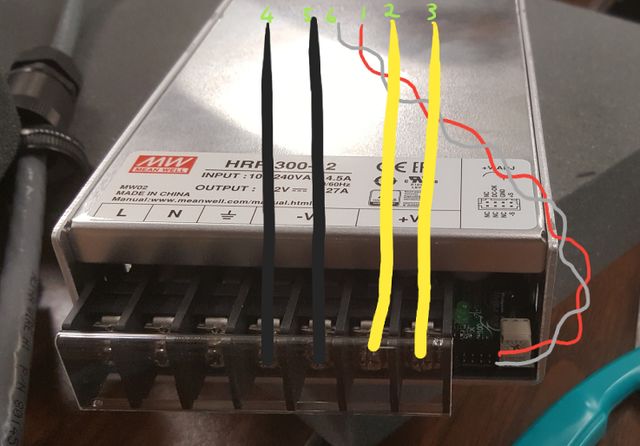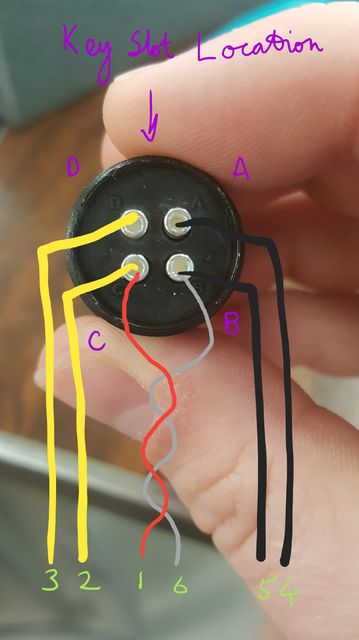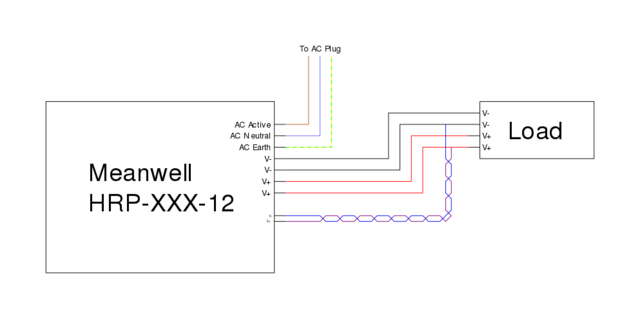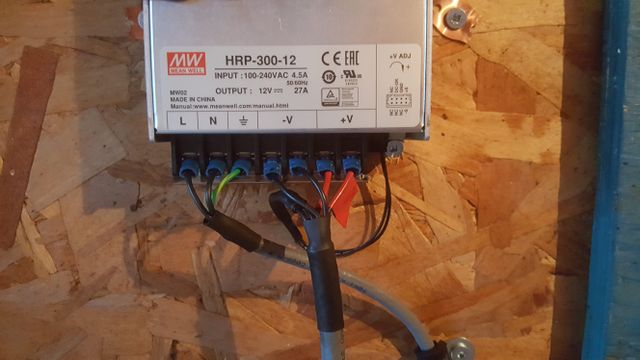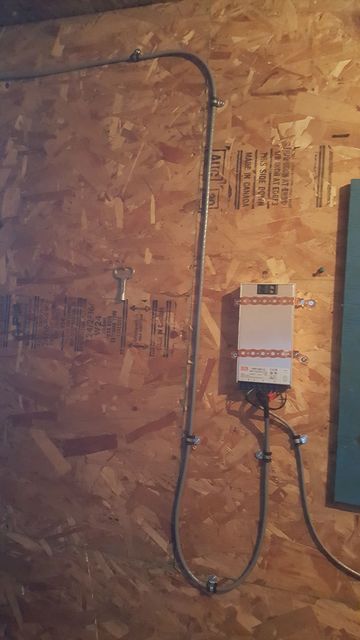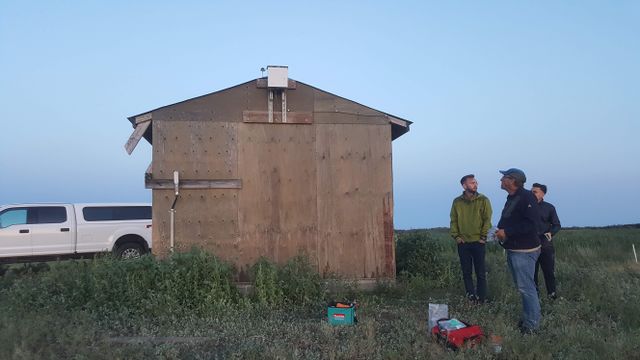Difference between revisions of "AC Power Supply"
Robert Howie (talk | contribs) (Tag: visualeditor-switched) |
Robert Howie (talk | contribs) (Tag: visualeditor) |
||
| Line 17: | Line 17: | ||
The transition from insulated wire to contact needs to be covered by heat shrink to prevent short circuits if the cable subject to twisting torques.]] | The transition from insulated wire to contact needs to be covered by heat shrink to prevent short circuits if the cable subject to twisting torques.]] | ||
| − | [[File:20190724_212110.jpg]] | + | [[File:20190724_212110.jpg|640x640px]] |
| − | [[File:20190724_212620.jpg]] | + | [[File:20190724_212620.jpg|640x640px]] |
| − | [[File:20190724_212709.jpg]] | + | [[File:20190724_212709.jpg|640x640px]] |
Revision as of 08:00, 27 July 2019
The power supply recommended for AC powered installations where the observatory is located close to the AC power supply is the Meanwell GST120A12.
For observatories with heaters and long DC power cable runs the Meanwell HRP-300-12 is recommended as it's remote sense functionality allows it to compensate for any voltage drop in the long cable runs. (If no heaters are present, the Meanwell HRP-150-12 is the preferred option.)
Outdoor Cable
The recommended off the shelf for use on roofs or outdoor structures is the sunlight and abrasion resistant AlphaWire EcoFlex PUR 80045 SL005 (unshielded) or 80145 SL005 (braid shield). Digi-Key usually has one or the other in stock: 80045 SL005, 80145 SL005.
That cabling doesn't have a twisted pair, so we recommend wiring up the conductors to the green numbering in the two images below.
